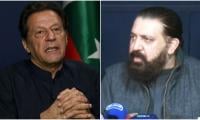ISLAMABAD: The end of General Qamar Javed Bajwa’s tenure as Chief of the Army Staff (COAS) is fast approaching. As Pakistan Army prepares for a change of command, it is important to evaluate the role played by the outgoing COAS in his six years at the helm of affairs, as the decisions taken by General Bajwa during this time will have long-lasting impact, not on just the armed forces but the country as a whole.
General Bajwa’s tenure as the COAS has been the subject of many discussions and also great controversy. Often the din of criticism directed towards the person at the helm of affairs drowns out the value of some important and constructive decisions they make. General Bajwa is no different; during his tenure as the COAS, Pakistan Army became the subject of immense public scrutiny due to its perceived role in politics and as a top office holder in the country, General Bajwa himself became the target of reproval from politicians, the media and civil society. Yet, despite the constant carping from various quarters, the outgoing COAS succeeded in setting new precedents.
Defence Budget: Contrary to the common perception that conveniently lends itself to criticism of the armed forces and the COAS, during General Bajwa’s tenure, the defence budget did not increase. This was a conscious decision taken by the leadership of the armed forces to aid the country’s economy. Pakistan’s defence budget as a percentage of the GDP went down drastically, from 6.50 percent in the 1970s to 2.54 percent in 2021. In the budget for fiscal year 2021-22, defence services were allocated Rs1,370 billion, out of the total budgetary resources of Rs8,487 billion, about 16 percent of the total budgetary resources.
Of this 16 percent allocation, the Pakistan Army gets Rs594 billion. In effect, Pakistan Army gets a paltry seven percent of the total budgetary resources. The Pakistan Army in the year 2019 also relinquished Rs100 billion of its budgetary allocation to support the economy of the country.
Although, Pakistan has the seventh largest military in the world, its expenses are actually among the lowest. The US spends $392,000 per soldier, Saudi Arabia spends $371,000, India spends $42,000, Iran spends $23,000, while Pakistan spends $12,500 per soldier every year. In addition to restricting the defence budget, Pakistan Army also took an unprecedented step of freezing the defence budget allocation in 2019. With this meagre defence allocation, Pakistan Army not only maintained its old equipment but also inducted new conventional weapon systems, simulators, enhanced niche capabilities, cyber warfare capabilities and carried out latest developments in missile and nuclear technology.
Despite having lesser defence budget compared to contemporary armies of the world, Pakistan Army did not compromise on its professional standards and is ranked as the 9th most powerful military in the world by the Global Firepower Index.
Welfare and Taxation
Pakistan Army also contributed Rs28 billion in fiscal year 2020/21 as direct taxes to the government exchequer. As welfare organizations, Fauji Foundation and Army Welfare Trust spent nearly 73 percent of their incomes on wards of martyrs, the war wounded, disabled soldiers and retired military personnel. As many as 17 percent of their employees are wards of martyrs, WWP and retired military personnel and these organizations also provide jobs to a large number of civilians. In 2021, the contributions of Fauji Foundation to various welfare activities reached nearly Rs1 billion.
Fauji Group is among the country’s highest taxpayers, with Rs 150 billion paid to the national exchequer in taxes, duties and levies in fiscal year 2020/21. Over the last five years, Fauji Foundation paid Rs 1 trillion to the government in taxes and levies. Moreover, Fauji Group incurred Rs1.377 billion in the year 2021-21 on account of Corporate Social Responsibility activities through donations and local welfare activities.
Similarly, DHAs are self-generating units with no financial contribution from the Pakistan Army. Eight DHAs are providing employment to around 15,000 individuals, of which only around 30-35 percent are ex-servicemen. In the last five years, DHAs have contributed approximately Rs20 billion in taxes to the exchequer. The National Logistics Cell (NLC) employs over 6,500 civilians and ex-servicemen and has paid Rs6 billion in taxes in the last five years.
The Frontier Works Organization (FWO) has worked in diverse fields, including construction of roads, railway lines and airfields, construction of dams, canals and barrages, tunnelling, mining and construction of residential and industrial infrastructure. The FWO is contributed to the inauguration of Kartarpur border crossing, Makran Coastal Highway, road network in former FATA as well as Balochistan, M-8, N-85 and the rehabilitation of Sukkur Barrage and the construction of Pakistan’s first special hospital to treat infectious diseases at Islamabad in only 40 days. The FWO is also contributing to education by providing with skills training at Construction Technology Training Institute (CTTI) and the FWO Institute of Technical Education (FITE) to nearly 34,000 students.
Dispute Settlements
Karkey Karadeniz Electrik Uterim dispute settlement counts among the best examples of Pakistan Army’s efforts for the economic welfare of Pakistan. A Turkish company namely Karkey Karadeniz Electrik Uterim (Karkey) was found to be involved in corruption and a core committee composed of civil and military leadership found evidence of corruption in Turkey, Switzerland, Lebanon, Panama and Dubai (the UAE). This evidence was presented to the International Centre for Settlement of Investment Disputes (ICSID) Tribunal. Pakistan Army amicably resolved the Karkey dispute and saved Pakistan a 1.2 billion dollars penalty imposed by ICSID. If the dispute had not been settled, Pakistan’s GDP would have shrunk by nearly two percent and the country would have defaulted on its international obligations.
On August 14, 2020, the President of Pakistan conferred the civil award of Sitara-e-Imtiaz to three officers of the ISI, who played a pivotal role in the successful settlement of the Karkey dispute.
Furthermore, thanks to the efforts of the outgoing COAS, Pakistan was saved from a $11 billion penalty in the Reko Diq case and a new project aimed at excavating gold and copper reserves from Balochistan was reconstituted. The Reko Diq agreement was the result of General Bajwa’s personal efforts as he convinced all parties for a national consensus.
Security to CPEC Projects
Pakistan’s relations with China have deepened over the years with projects such as the China-Pakistan Economic Corridor (CPEC). Pakistan Army, under the leadership of COAS General Bajwa, played a key role in these ties as the security for this project was guaranteed by the armed forces.
The Pakistan Army foiled many plans by enemies to sabotage the CPEC project. Chinese Minister for National Defence General Wei Fenghe acknowledged and appreciated Pakistan Army’s sincere efforts for regional peace and the secure environment provided to CPEC projects. Commenting on the extension granted to COAS General Bajwa, China’s foreign ministry spokesperson Geng Shuang said, “We believe that under the leadership of General Bajwa, Pakistan Army will continue to make contributions to upholding Pakistan’s sovereignty and security interests and regional peace and stability. General Bajwa is an extraordinary leader of the Pakistan Army.”
Providing security to the Chamalang coal mines, raising a special security division for the protection of CPEC routes, developing road infrastructure for CPEC and assisting the government in development and construction of the much-needed dams at considerably low costs through the FWO have provided the much-desired economic leverage to the government.
NCOC and COVID-19 Support
When the COVID-19 pandemic escalated in March 2020, the NCOC was established to leverage the combined resources of the civil and military apparatus. The Pakistan Army was on frontlines of the fight against the pandemic under the command of the COAS.
COVID-19 exposed the terrible state of the health sector but the NCOC managed to prop up competent systems to cope with the emergency. The local army corps joined with provincial administrations to implement the COVID-19 policies as well as to enforce lockdowns.
Under the directions of COAS, COVID testing labs were established at major military hospitals across the country, with a central facility set up in Rawalpindi. Pakistan Army stepped in for the support of police and LEAs in the implementation of the COVID SOPs laid down by the NCOC and Ministry of Interior. Thousands of army troops were deployed across the country to check on medical facilities and other arrangements and compensated for the manpower shortages among the civil administration wherever needed. The army’s supportive role in national response against Covid-19 pandemic through National Command and Operational Center (NCOC) signifies its institutional strength and capacity.
Urban flooding
In 2017, 188 troops, 21 dewatering pumps and 30 boats were utilized in urban flood relief and rescue operations in Karachi. In 2018, 200 troops, 26 dewatering pumps and 19 boats were utilized to carry out urban flood relief and rescue operations in Lahore. Similarly, in 2020, over 4,000 persons, 100 dewatering pumps, 105 boats and aviation assets were used to rescue 10,000 individuals from floods in Karachi, Hyderabad, Sindh, Punjab and KP. More than 50 shelters were established and over 75 medical camps were set up.
Countering the locust threat
The Pakistan Army was also actively engaged in the country’s fight against locusts through the establishment of the National Locust Control Center (NLCC). The role of NDMA, headed by a lieutenant general, in tackling the catastrophic fallout of natural calamities was commendable.
The locust threat exposed the terrible state of government’s preparedness to manage threats to food security. The Plant Protection Department till the 1990s used to have 20 to 22 aircrafts available for spraying fields. Today, they have three. This is where the army aviation stepped in with one plane and four helicopters that were being used for spraying against locusts. In continuation of this, nearly 10,000 army troops were deployed in the field to conduct surveys and execute sprayings on the ground through tractor and car-mounted machines. In 2020, the army facilitated establishment of the National Locust Con Central (NLCC) and employed 3,600 people in 61 districts to augment the national response against locusts to preserve food security.
Military Diplomacy
The combined military exercises with various countries strengthened national and economic relations with the people of these nations. Relations with Russia were also revived as a result of successful military training and exercises. Some examples of these exercises include; the Pakistan-Jordan joint exercise Fajr-ul-Sharq 1 in December 2016, the counter terrorism training of Nigerian Special Forces Battalion by a Pakistan Army SSG team in Tarbela June 2017, joint exercise DRUZBA 2017 between special forces of Pakistan and Russia Armies in September 2017, Pak-Saudia Special Forces joint counter terrorism exercise Al-Shehab-2 December 2017, Pak-China joint military exercise Warrior–VI 2018 in December 2018, Operation Reflect at UK conducted from 20-27 October 2018, Sixth bilateral exercise Sea Guardians 2020 between Pakistan Navy and PLA (Navy) in January 2020, Pakistan-Bahrain joint exercise Al Badar IV 2020 in February 2020, ATATURK-XI 2021, a joint Special Forces exercise between Turkish and Pakistani forces February 21, Pakistan-Morocco Bilateral Joint Exercise in October 2021.
As many as 46 countries took part in Naval Ex Aman-21. NATO allies like the US and the UK took part alongside Russia in Aman-21. Under the auspices of the Pakistani Navy, divergent forces have shared counterterrorism strategies, recognising that the threat of terrorism is bigger than any single state. In March 2022, the US and Pakistan Air Forces held a joint exercise, Falcon Talon 2022, at a Pakistan Operational Air Force Base.
International Relations
The military leadership was involved in resolving a number of important issues during the six-year tenure of General Bajwa as the COAS. It played a central role in the opening of the Kartarpur Corridor in 2019, enabling access to thousands of Indian Sikh pilgrims to their holy sites across the border.
Pakistan also made unprecedented progress in FATF action plans during General Bajwa’s tenure. Pakistan was moved out of the grey list thanks to the proactive measures taken by the military leadership addressing various legal, financial and terrorism issues through enactment of laws pertaining to money laundering, foreign exchange regulation and anti-terrorism.
The military leadership was also pivotal in strengthening relations with Qatar, UAE, Saudi Arabia, USA, UK and Europe, which brought in much-needed foreign exchange to the country. The military leadership also made important contributions in securing loans from the IMF, Saudi Arabia and gas contracts with Qatar.
The military leadership was also a key player in resolving the Afghan crisis, paving the way for a negotiated settlement between the United States and the Taliban. Prior to this negotiated settlement, the military leadership played a central role in the merger for tribal areas with Khyber Pakhtunkhwa, resolving a longstanding demand of the people of the area. Pakistan Army also initiated border fencing on the western border, securing the country against militants and terrorist attacks.
Riyadh announced on August 15, 2021 that it had withdrawn its diplomats from Afghan capital
South Africa had their target reduced by one run to 308 via Duckworth–Lewis–Stern method
Putin was addressing local leader of Tatarstan region where Kazan is located in road-opening ceremony
India is home to more than 220 million child brides, according to United Nations
Sindh CM underscores appointment of dedicated Ombudsperson to safeguard rights and interests of working women in Sindh
Students under age of 22 with domicile of Punjab will be eligible for Honhar Scholarship







